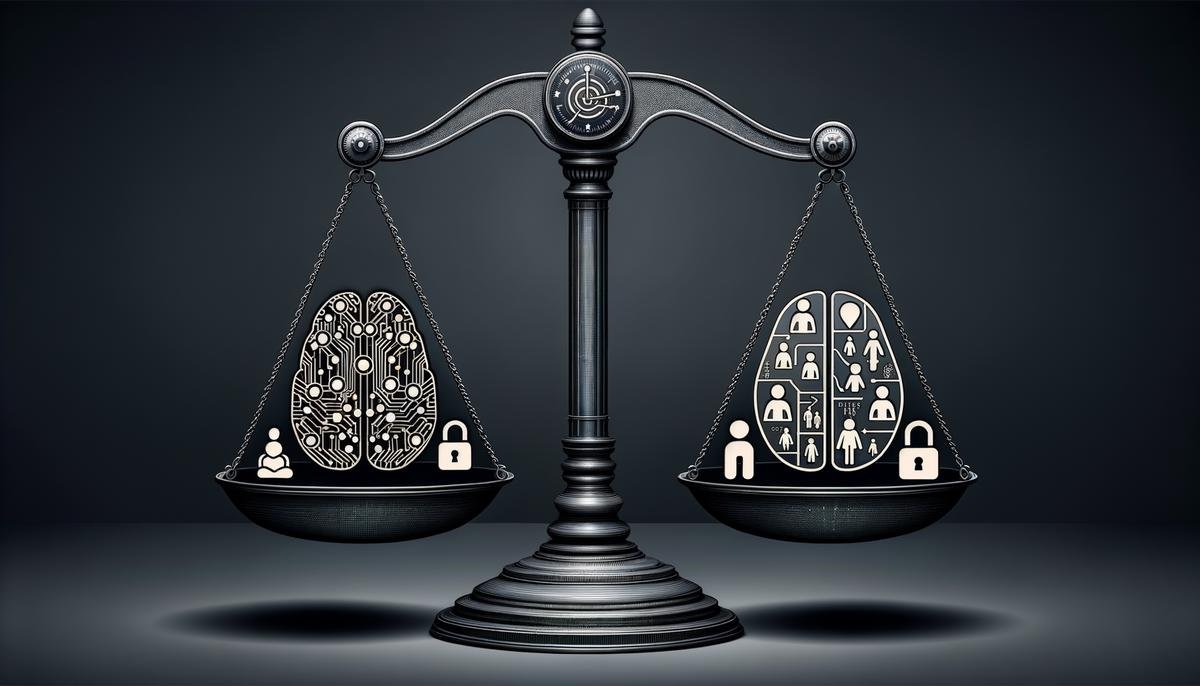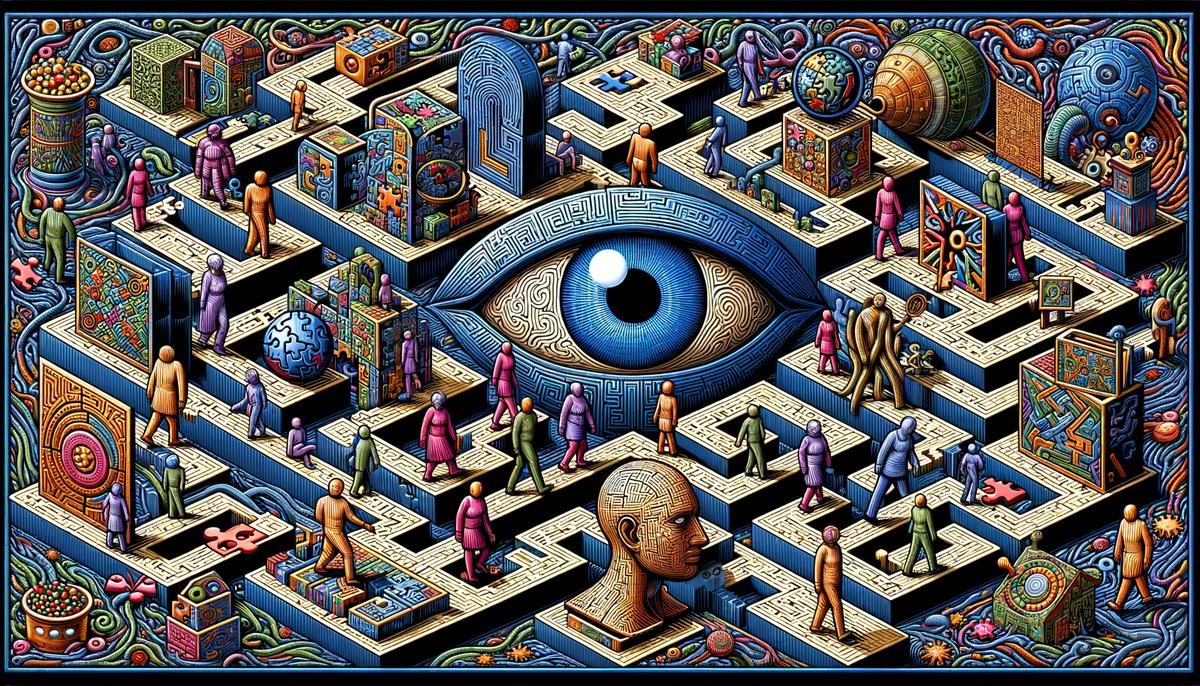AI Applications in Mental Health
AI technologies are revolutionizing mental health support in several key ways:
- Early detection: Algorithms can analyze social media behavior to identify early signs of depression or anxiety.
- 24/7 support: Virtual assistants and chatbots like Wysa offer round-the-clock therapeutic support, expanding access to care.
- Personalized treatment: AI can create tailored treatment plans by analyzing medical histories and data from wearable devices.
- Enhanced therapy: AI augments traditional methods by processing vast amounts of data while therapists guide the emotional aspects.
However, challenges remain. AI may struggle when conversations go off-script, underscoring the continued importance of human expertise in guiding mental health care.
Ethical Considerations
The integration of AI in mental health raises important ethical concerns:
- Privacy: Collection of personal information poses risks of potential misuse. Data security is crucial as regulators increase scrutiny of digital information handling.
- Bias: AI models can reflect and amplify biases present in their training data. Diverse datasets are essential to avoid excluding or misrepresenting certain groups.
- Human element: Despite AI's intelligence, it lacks human emotional processing capabilities. AI should complement rather than replace human therapists in providing genuine empathy and understanding.
"The human element remains vital in therapy. Despite AI's intelligence, it lacks the ability to process emotions like humans do."

AI's Role in Personalized Treatment
AI acts as a sophisticated data analyst in mental health care:
- Examines diverse data sources to create unique treatment plans
- Continuously learns and adjusts care plans through ongoing monitoring
- Collaborates with human experts who interpret AI-generated insights
While AI is making significant strides, its true value lies in teamwork with skilled professionals. This collaboration ensures decisions lead to improved health outcomes while maintaining the essential human touch in patient care.

Challenges and Limitations
| Challenge | Description |
|---|---|
| Data reliability | Incomplete or flawed data can lead to inaccurate conclusions |
| AI bias | Can reinforce social stereotypes or misdiagnose issues in underrepresented groups |
| Human oversight | Necessary to provide empathy and common sense to balance AI technology |
Ensuring data accuracy, using diverse datasets, and maintaining strong partnerships with human experts are critical for effective AI implementation in mental health care.

Future Directions
To harness AI's potential in mental health care, several key areas require focus:
- Regulatory frameworks: Establish clear guidelines to ensure AI respects privacy and ethical considerations.
- Transparent validation: Prioritize openness about AI processes, allowing healthcare professionals to understand how conclusions are reached.
- Continuous research: Ongoing development is vital to keep AI relevant, useful, and responsive to evolving patient needs.
- Cross-sector collaboration: Foster partnerships between AI companies, mental healthcare professionals, policymakers, and researchers to create harmonious systems.
AI is reshaping mental health care, offering innovative ways to support individuals while working alongside human expertise. As we navigate this evolving landscape, the synergy between technology and human empathy holds the key to a more responsive and effective future in mental health support.
- World Health Organization. Mental Health Atlas 2020. Geneva: WHO; 2021.
- Patel V, et al. The Lancet Commission on global mental health and sustainable development. Lancet. 2018;392(10157):1553-1598.
- Luxton DD. Artificial intelligence in behavioral and mental health care. Academic Press; 2015.
- Fitzpatrick KK, Darcy A, Vierhile M. Delivering cognitive behavior therapy to young adults with symptoms of depression and anxiety using a fully automated conversational agent (Woebot): a randomized controlled trial. JMIR Ment Health. 2017;4(2):e19.




